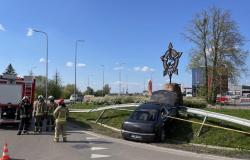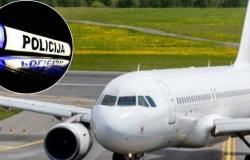According to I. Tandzegolskienė-Bielaglovė, who participated in a week-long internship in the Valencia region, Spain, everyone should try to take advantage of the internship opportunities. D. Lapėnienė, the director of Kaunas Jonas and Petros Vileišiai School, who has returned from an internship in South Korea, agrees with this.
“The experience we had in South Korea while communicating, discussing with the specialists of this country and then discussing our impressions in Lithuania helps us to evaluate ourselves and strengthens our determination to continue what we are doing, as well as to explore ways to improve the good experience of teaching and learning using technology. This greatly strengthens the idea that we are probably doing the right thing and that we have to continue doing what we started,” the school director shared her thoughts.
I.Tandzegolskienė-Bielaglovė says that in order to use all the opportunities provided during the internship, it is always necessary to properly prepare for it. First of all, think about what exactly this internship aims to achieve, prepare for a large amount of information and an intensive agenda. The interviewer encourages going to foreign countries and broadening one’s horizons: “I really recommend internships to every person working in the field of education, because it is in them that you can gain a lot of experience and learn, delve into purposeful planning and cooperation with each other.”
Clear goals are set
The education system and applied educational modules often differ in different countries and are formulated based on the country’s general approach to education, culture, history and good practices. Therefore, it is not surprising that abroad one can see a clear focus on the problems important to that country and strategic preparation in order to realize the set goals, which are not necessarily the same as in Lithuania.
According to I. Tandzegolskienė-Bielaglovė, the educational goals set in the Valencia region are quite dynamic, and although each school has its own specificities, in the end, everything comes together in the use of technologies and their application, teamwork and the development of creativity. One of the most memorable factors, according to her, is the setting of quality goals focused on ensuring equal opportunities in the education system, strengthening inclusive education and multilingualism. According to the teacher, it is possible to achieve the set goals in Valencia precisely because of strong mutual communication.
“The consultants we talked to each have ten schools from the Valencian region that they serve and work with every day. Consequently, there is a strong dialogue between the regional administration, as well as between schools and consultants who, as mediators, focus on targeted activities and talk to schools. This means that they plan, analyze which competences are already strong in the school and which should be strengthened, which activities to focus more on and, based on the collected information, form and set goals for two years”, said the Deputy Chancellor of the Academy of Education of VDU for studies.
The most obvious differences
D. Lapėnienė notes that, in her opinion, the most memorable difference between Lithuania and South Korea in the education sector is respect for rules, teachers and trust in their competences, common attention and the prestige of science. In addition to all that, applying and creating practically identical digitalization guidelines, according to the school director, one feels a more detailed and deeper consistency in the application of methodological tools.
“We have experienced that the digitization of education is being implemented in 2023-2026. South Korea is working on the Seoul education development plan analogously to Lithuania, and it is doing it consistently. After going to the globally recognized ETRI Institute, we got to know the scientists who have published methodological guidelines for the implementation of digital technologies. After using them, we realized that they are consistent, and it was from the guidelines that the real work began. The processes are worked on at the level of municipalities and researchers to be consistent and expert, and then the tools are presented for practical use and implementation in schools,” she said.
The internship in South Korea was very informative. Meetings were held at the Ministry of Education and Science, a high school in Sejong City, Korea University, Google Korea Office, Seoul Education Office, Dulwich Private College, Luxrobo, a leading educational technology company. The main goal was to participate in the traditional exhibition “Education Korea 2024” and the conference “Educon 2024” held during it.
South Korea was chosen for several reasons. The students of this country consistently achieve high results in the international PISA study of fifteen-year-olds. As many as 15 universities in the country are in the TOP 500 list of the international university ranking “QS World University Rankings”. The country’s technology companies are developing educational technologies that are widely used at all levels of education from early childhood education to high schools.
Not only challenges, but also opportunities
The director of the Jonas and Petros Vileišiai School in Kaunas draws attention to the prospects and calls not only to learn from South Korean educational institutions, but also to take action.
“Together with other pedagogues, after returning from the internship, we discussed that we are a small country, and although we do not have many resources, we have developed intellectual potential, which is reflected in the number of start-ups recorded in Lithuania. So maybe it’s time to think about how to show our own experiences. The “EdTech week” organized by the Edtech Center is an excellent example of how to properly share accumulated experience and help teachers,” says D. Lapėnienė.
I.Tandzegolskienė-Bielaglovė agrees with it and emphasizes the opportunities provided by technology for students and the need for educators to constantly learn: “With the help of technology, you can visualize certain things in the learning process, for example, virtually travel to museums in France or Germany, analyze the objects there and discuss it with students . I think it’s really beneficial. The new technologies encourage the improvement of teachers, university lecturers, pedagogues in general, it is an impetus to look for new teaching methods that complement the existing educational modules.”
The EdTech Center will host a total of nine internships with the participation of approximately 100 educators and other members of the education community. Internships are planned or already held for them in Finland, South Korea, Germany (at the exhibition “didacta”), the United Kingdom (at the exhibition “BETT”), Norway.
Tags: encourage advantage opportunities
-





